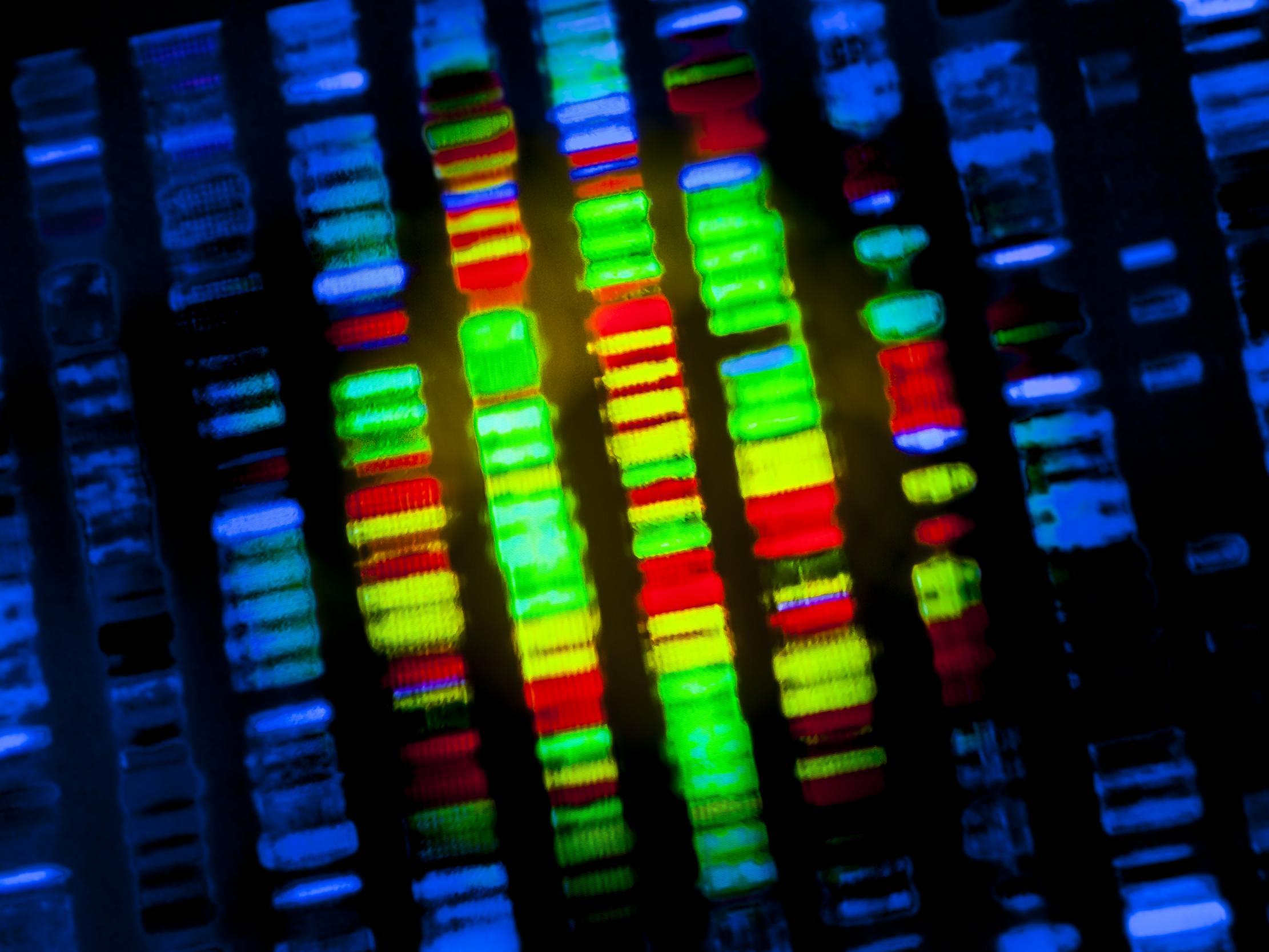New DNA testing on the NHS will help hundreds of critically ill children and babies
Roll-out of whole-exome sequencing in England aims to improve speed and probability of diagnosis of 700 youngsters a year

Your support helps us to tell the story
From reproductive rights to climate change to Big Tech, The Independent is on the ground when the story is developing. Whether it's investigating the financials of Elon Musk's pro-Trump PAC or producing our latest documentary, 'The A Word', which shines a light on the American women fighting for reproductive rights, we know how important it is to parse out the facts from the messaging.
At such a critical moment in US history, we need reporters on the ground. Your donation allows us to keep sending journalists to speak to both sides of the story.
The Independent is trusted by Americans across the entire political spectrum. And unlike many other quality news outlets, we choose not to lock Americans out of our reporting and analysis with paywalls. We believe quality journalism should be available to everyone, paid for by those who can afford it.
Your support makes all the difference.New DNA testing now being made available across the NHS will help to diagnose rare conditions in hundreds of critically ill babies and children.
Up to 700 babies a year could benefit from the new tests, known as “whole-exome sequencing”, which have already helped dozens of patients since October, when testing became routine.
NHS England says the roll-out is part of efforts to harness the power of genetics, with the launch in 2018 of the Genomic Medicine Service in England aimed at improving care and saving lives.
Whole-exome sequencing, which was developed by scientists in Exeter, can double the chance of a diagnosis and reveal what is wrong with patients in days rather than weeks. Since Autumn, 80 children have been tested and more than half have been diagnosed.
Unlike standard tests, which are sometimes limited to specific conditions, exome sequencing can identify a range of life-threatening conditions in one go.
The tests, delivered from the South West Genomic Laboratory Hub, can detect rare neurological, metabolic or other conditions by identifying genetic mutations, and help doctors to know which patients will respond to treatments.
Lauren Dunn’s son Henry spent several months in intensive care after being born, with a range of problems that could not be explained by his premature birth.
Henry’s DNA was sent for exome sequencing and, in less than a week, was diagnosed with Costello syndrome – a rare disease that can cause a range of health problems and lead to an increased risk of childhood cancer.
When Henry did develop cancer on two separate occasions, it was picked up early and successfully treated. He is now four years old and in remission.
His mother said: “Without the exome sequencing, Henry’s diagnoses of rhabdomyosarcoma and liver cancer, and treatment for these, would likely have been delayed. Knowing that Henry has Costello syndrome provided the missing piece of the puzzle and means that he receives the medical management that he needs to make sure his needs are met and to help him achieve his full potential.”
Sir Simon Stevens, chief executive of NHS England, said: “Over the next decade, the NHS will continue to expand the range of personalised, precision medicines, including rolling out genomic testing to all people with rare diseases and patients with cancer.”
The health secretary, Matt Hancock, who is a strong advocate of the NHS adopting new technologies, said: “This kind of genomic technology is game changing for the NHS, and will complement our existing commitment to offer whole-genome sequencing to children with cancer and rare genetic disorders.
“It’s one step forward, and over the coming years we will expand the use of genomic testing right across the NHS.”
Join our commenting forum
Join thought-provoking conversations, follow other Independent readers and see their replies
Comments